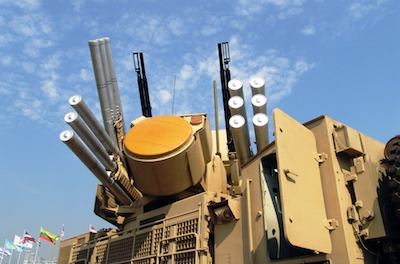 The threat of a Russian attack on Belarus and Kazakhstan may be among the greatest challenges of the new president’s first term.
The threat of a Russian attack on Belarus and Kazakhstan may be among the greatest challenges of the new president’s first term.
A key aim of Russian President Vladimir Putin’s foreign policy is to expose America as a paper tiger, emboldening other states, and increasing the possibility of Russia’s all-out confrontation with U.S.-led NATO. If unchallenged by the United States, Putin’s assault on two large post-Soviet states after his war on Ukraine would mean further unravelling of the post-Cold War world order of which the United States is the key guarantor. Russia’s control of Belarus would bring the Russian military to the borders of two NATO member-states, Poland and Lithuania.
At first glance, Belarus and Kazakhstan could hardly be more different. Belarus, with an overwhelmingly Slavic and Russian Orthodox population of 9.5 million, borders Russia to the northwest; Kazakhstan abuts Russia in the southeast and its 18 million citizens are majority Muslim and Turkic. Yet, in the next two years, both nations could face potentially severe domestic political and economic troubles, leading to foreign policy choices that could tempt Putin to invade in order to address Russia’s “security issues,” or boost his popularity at home.
Despite being Russia’s most loyal allies among the post-Soviet states, Belarus and Kazakhstan may soon put this allegiance to the test. No longer able to count on Russian support as Russia’s subsidies and loans dry up because of low oil prices, negative GDP growth, and Russian economic straits, longtime authoritarian ruler Alyaksandr Lukashenka has begun tentative liberalization inside the country, opening to the West to secure loans and investments, eager for the early 2016 removal of European Union sanctions, and becoming markedly friendly toward Kiev.
To the increasingly paranoid Putin, these policies may signal an erosion of the military reliability of the country that lies between Russia and NATO’s eastern flank. An even larger danger, in Putin’s eyes, might stem from Lukashenka’s liberalization bringing about a full-scale democratic revolution, with a sharp turn away from Russia and toward the West.
Liberalization is not an issue in Kazakhstan, but with autocrat Nursultan Nazarbayev having turned 76 this year, a succession crisis is looming. Given the increasing participation of Kazakhstan’ s nationals in ISIS and the attacks on police stations and gun stores by Islamic militants, instability could be fraught with Islamic extremism. With the death of key Central Asian secular dictator, Islam Karimov of Uzbekistan, Kazakhstan’s 4,000-mile border with Russia may soon become the frontier between Russia and failed Central Asian states riven by militarized Islamism — especially if the Taliban succeeds in subverting Afghanistan.
Because Belarus and Kazakhstan previously existed as Soviet republics; each has large ethnic Russian minorities, “abandoned” after the Soviet Union collapse. Russia could also use the defense of Russians from Belorussian “nationalists” or Kazakh “religious extremists” as an excuse for aggression, as it has done with Ukraine.
Putin has been fairly explicit in reminding Minsk and Astana of these facts. The Russian president has criticized the arbitrary nature of post-Soviet borders and put the Kazakh leadership on notice, implying that Moscow will be watching Kazakhstan’s succession very carefully.
The prospect of Russia exploiting, stoking, or even engineering political and social instability in Belarus and Kazakhstan as an excuse for a military intervention has additional urgency because of the Kremlin’s domestic political imperatives. Russia’s presidential election is scheduled for 2018 and while Putin’s re-election is not in doubt, it is not going to be an easy win, even with what Russians call “administrative resources” fully mobilized.
Five years of negative or low growth have stalled social mobility in Russia, depressed oil prices, gutted education and health care for defense budget increases, and caused pensions to be indexed below inflation rate. The prospect of Putin extending his stay in power to 24 years, to the end of his term in 2024 (matching Stalin’s 1929-1953 rule) when he will turn 72, may be too much for even his most devoted supporters. Today, there are increasingly plausible rumors that the election will be moved up a year, to 2017, in order to prevent the “negatives” from accumulating even further.
Thus a crisis in a neighboring state “requiring” a Russian military intervention either for the “protection of the motherland” from NATO or to defend ethnic Russians from “extremists” (or both) may be the only way to rally the country around Putin as the protector of the Motherland. Economic, political, social concern and criticism would be drowned out in the rising tide of militarized patriotism.
www.valuewalk.com, 15.10.2016




